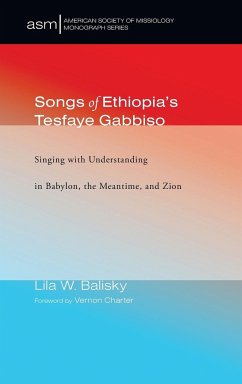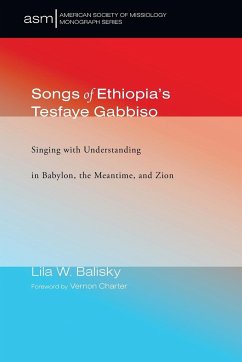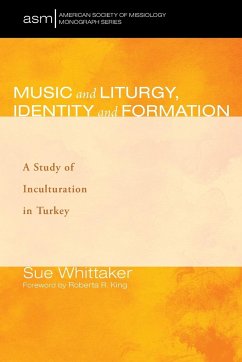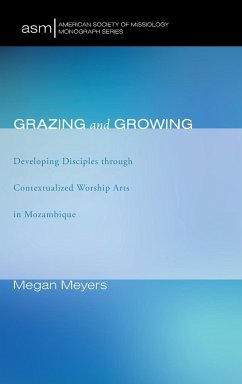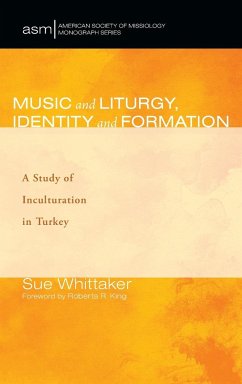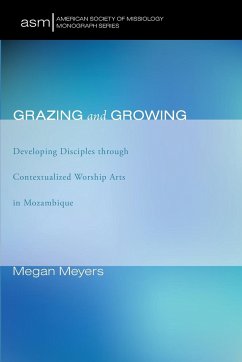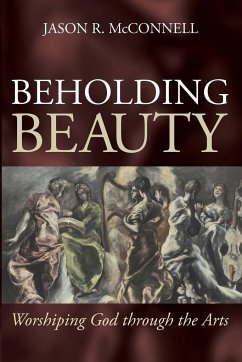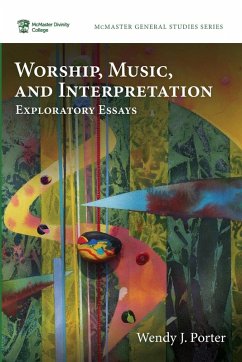Tesfaye Gabbiso, prominent Ethiopian soloist, began composing song texts and tunes as a young lad in the early 1970s during a period of social and political upheaval in Ethiopia. This national ferment strengthened a creative surge among a generation of youth as the Ethiopian revolution (1974-91) was taking hold. An explosion of indigenous spiritual songs was one result. The indigenous song style was in contrast to the imported and translated European hymnody that had earlier been sung in Ethiopia's evangelical churches. Because of his testimony, both in life and song, Tesfaye was imprisoned for seven years during the revolution, during which time he continued to compose and sing. Thus, his songs reflect suffering, endurance, and hope in the ""Babylons, Meantime, and Zions"" of life experience. The human voice in song, rooted in the flow of the missio Dei, is perhaps the greatest testimony that may be lived out, whether in a prison cell or in the larger complex world. A special feature of this book is the inclusion of 104 of Tesfaye's songs (Cassettes 1-7) in English translation. This study is valuable as a cross-cultural textbook, offers rich lyrics, and embodies a challenge to Christian commitment in the arts. ""Lila Balisky's investigation into the songs of Tesfaye Gabbiso is destined to become a classic in the power of theologizing through song in the midst of suffering. Her intimate understanding of the Ethiopian context, having lived through the Ethiopian Marxist revolution (1974-1991) with local believers, brings authenticity to the depth of Tesfaye's testimony in songs that sustained Ethiopian Christians during severe persecution. It will force you to think more deeply about God and His ways."" --Roberta R. King, Professor of Communication and Ethnomusicology, Fuller Theological Seminary, Pasadena, CA. ""Writing and researching from a posture of humility, and with nearly 40 years of cross-cultural ministry in Ethiopia, Lila Balisky has written a superb study of the life narrative and songs of Ethiopian singer, composer, and church leader Tesfaye Gabbiso . . . Vividly aware of the challenge of translating meaning from one language and medium to another, Balisky takes the necessary precautions and gets it right. She has given us a wonderful study that celebrates both musical creativity and deep indigenous worship."" --Darrell Whiteman, Missiological Anthropologist, Global Development ""Tesfaye, Ethiopia's most distinguished and renowned gospel singer has inspired, encouraged, and uplifted millions of Ethiopians through his theologically sound, but musically superb songs, which he has composed and sung. This is particularly true of the songs he produced when the church came under fire during the times of the Ethiopian Revolution. This book represents a significant addition to the study of music in Ethiopia and marks a major step in introducing the Ethiopian dimension of ethnomusicology to the larger scholarly conversation."" --Tibebe Eshete, Department of Religious Studies, Michigan State University ""Songs of Ethiopia's Tesfaye Gabbiso, by Lila Balisky, is a solid work in research methodology and analysis of a modern musical saint and his contribution to Ethiopia and world hymnody. Thanks to Balisky for shedding theological and cultural light on the person, life and ministry of Tesfaye Gabbiso."" --J. Nathan Corbitt, Professor Emeritus of Cross-Cultural Studies, Eastern University Lila Balisky, with her husband Paul, served under SIM and the Ethiopian Kale Heywet Church from 1967 to 2005. She has taught at the Ethiopian Graduate School of Theology, Evangelical Theological College in Addis Ababa, as well as in theological schools in other areas of Ethiopia. Her published articles have appeared in Missiology, Evangelical Missions Quarterly, Worship and Mission for the Global Church, and various SIM publications.
Hinweis: Dieser Artikel kann nur an eine deutsche Lieferadresse ausgeliefert werden.
Hinweis: Dieser Artikel kann nur an eine deutsche Lieferadresse ausgeliefert werden.

